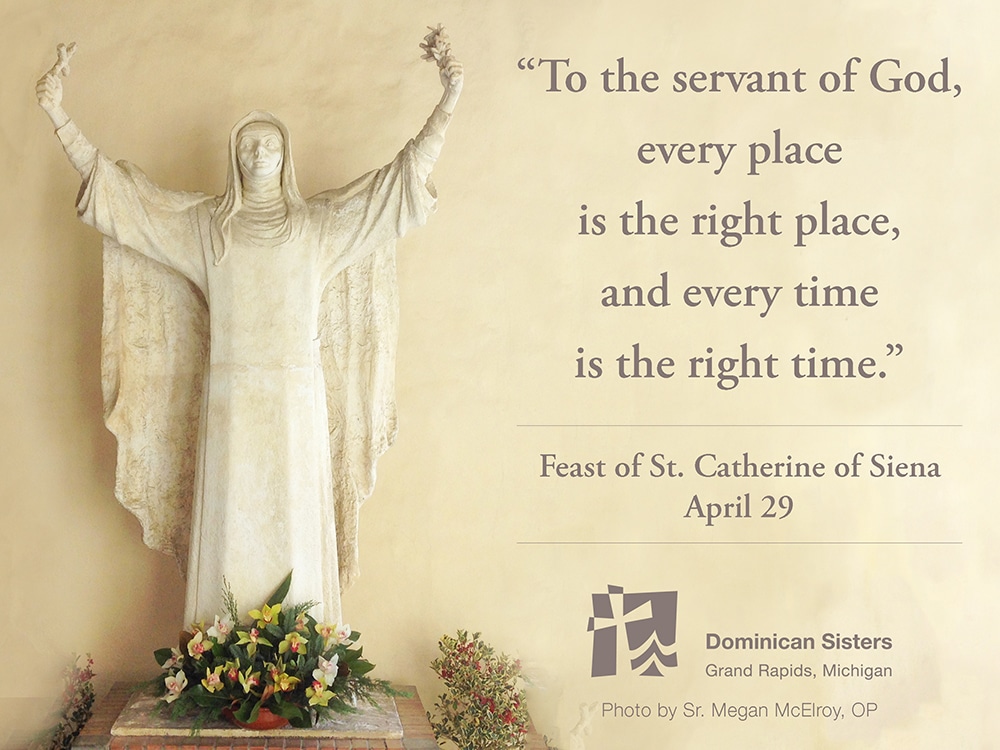
by Sister Claire Rolf OP, Prioress, Central Province Dominicans

To the servant of God, every place is the right place, and every time is the right time.
For seventeen years I lived in St. Catherine’s Monastery in Langeac, France. A beautiful statue of St. Catherine of Siena was perched above my place in the choir on my righthand side. When I raised my hands at the Our Father, I would imagine that St. Catherine would take my hand and, through the wonderful mystery of the communion of saints, I prayed with her. It became such a habit that, even now, when I raise my hands for the Our Father, I draw near to Catherine in prayer.
I am reminded that St. Catherine also lived in a time of great distress and uncertainty.
The Black Plague not only killed seven of her family members but four out of five persons in Siena, 80 friars in the convent of Florence alone, and claimed 25 million lives in Europe. She knows our anguish in the face of COVID-19.
What advice then does St. Catherine give us? What is the role of servants of God?
All those who love God and who wish to serve Him are, for Catherine, servants of God. This is how she defines herself by opening her letters with: I, Catherine, the servant and slave of the servants of Jesus Christ, write to you…
Like Catherine, we are called to love and serve the Church in its time of great need.
It is necessary for you and every creature to love and serve the Church at all times, but especially in time of need.
God wants to have mercy on the world with the help of His servants. He tells Catherine that He created the world without us, but He did not want to save the world without us. He has provided ways in which servants of God can contribute to the work of salvation.
The principal way that we are given is to grow in love / in personal holiness. It is one of the main themes of St. Catherine’s writing: “the Church is founded on love and is love itself.” She told everyone, including the Pope, that “the heart of the Church has been torn out and it is up to us to restore it by a deep love for God and our neighbor.”
To do this, we must enter into the “cell of self-knowledge” where we personally experience the goodness of God. There, we come to know our nothingness and sin and at the same time we know our dignity and experience God’s crazy love and mercy. Instead of a vicious circle of guilt, we are swept into the divine circle of Mercy. It is in the cell of self-knowledge that truth and love meet.
The second means we have, as servants of God, is to intercede. The Eternal Father explained to Catherine her weapon or remedy was “humble and continual prayer”.
“Take, therefore, your tears and sweat which are drawn from the springs of my divine love and with them wash the face of my beloved.”
You have said, Eternal Father, that because of the love you have for your rational creatures, that by the prayer of your servants … you will have mercy on the world.
Reflection by Sr. Claire Rolf OP, Prioress, Central Province Dominicans

